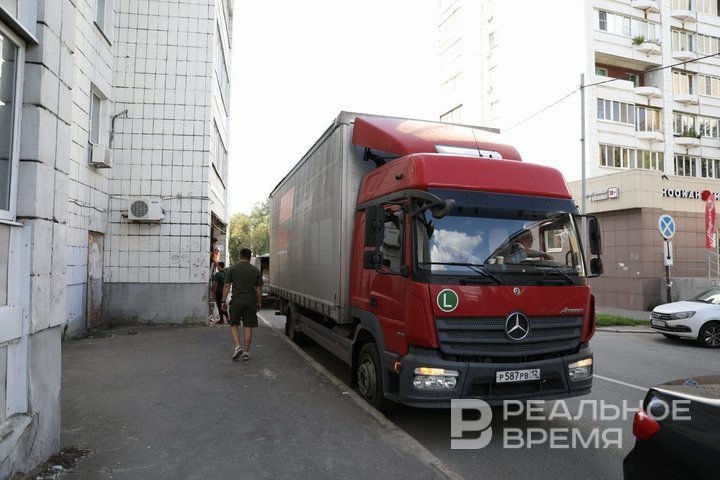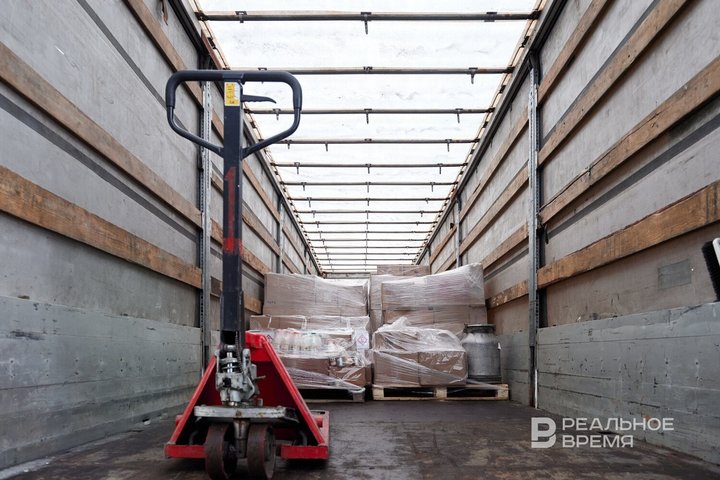Carriers expecting fines for overload to double in spring

Since April, Russian carriers have had an increased risk of receiving illegal fines after the owners of automated weight and dimension control points reconfigured them to take into account the spring restrictions on axle loads from 3.5 to 12 tonens depending on the region. Moreover, the fine for overload has increased by more than 50%, and the size of the discount for payment during the grace period has decreased from 50 to 25% of the penalty amount. Experts believe that improving the transportation control system will help avoid an increase in the financial burden. It is important to equally distribute responsibility between carriers and shippers, as well as to abandon automatically issued orders, resuming document checks by traffic police inspectors and, if necessary, vehicle inspections. Read more about this in the review prepared for Realnoe Vremya by the Association of Automobile Carriers and Forwarders AvtoGruzEx together with Avto-PEK and GLT.
Fines are issued automatically, without exceptions
This year, the probability of receiving an unjustified fine for exceeding the established parameters during the spring drying period has doubled, said President of the Association of Automobile Carriers and Forwarders (AvtoGruzEx) Vadim Filatov.
Transportation on regional roads is now monitored by automated weight and dimension control points (AWDC), the number of which, according to Russia’s transport watchdog, has increased by 23%, to more than 500 units. By now, the owners of AWDC points have already set axle load limits based on the requirements during the spring restrictions.

Now fines are issued automatically, without taking into account the cargo that falls under exceptions, including food and fuel. In addition, under restrictions, for example, in the Bryansk and Tula regions, where the maximum permissible load is 4 tonnes per axle, carriers can receive a fine even for driving an empty truck, emphasized Director General of the company Auto-PEK Dmitry Ievlev.
An equally acute problem is the lack of information about receiving a fine immediately after passing through an automatic weight and dimension control point. According to Dmitry Ievlev, companies can receive a notice of collection 4-6 weeks after the completion of the transportation, in some cases this period reaches two months. Because of this, the driver cannot promptly eliminate the overload, if any, and in some cases drives with an excess of the permissible load on the axles through several frames. In addition, if the frame turns out to be faulty, proving this in court several months later, by the time it can already be repaired, is very problematic.
Finally, if the fine came from a faulty frame, during the time during which the carrier receives the first notification, he may receive several more similar fines, which then have to be contested.
“Russia will face a shortage of vehicles for cargo delivery”
Last year, the passage of trucks during the spring drying period was controlled by Russia’s transport watchdog and the State Traffic Safety Inspectorate, checks were carried out at specially designated sites. The authorized bodies examined the contents of the semi-trailer and documents, which excluded the receipt of an unjustified fine, including for the passage of an empty vehicle or a truck with food, fuel or other cargo permitted for transportation, explained founder of GLT company Pavel Gorbunov.
This year, fines for overloading a vehicle have increased by 50%, to 375-525,000 rubles, depending on the excess axle load. “If previously the carrier was allowed to pay only 50% of this amount within 20 days, now it is necessary to pay 75% of the fine within 30 days,” said Vadim Filatov, citing amendments to the Code of Administrative Offenses of the Russian Federation. The speaker recalled that according to the results of the first quarter of 2025, the cost of cargo transportation in Russia increased by 12%, the main reasons being: an increase in leasing payments by 60 percentage points (up to 27-28%), recycling fees by 75-80% year-on-year, repair costs by 20% year-on-year, and the median salary level by 49% year-on-year, according to hh.ru and AvtoGruzEx.

The indicator of ATrucks analysts, reflecting the balance between supply and available transport on the market, fell by 18 percentage points year-on-year and reached minus 8 by 31 March. The average level of tariffs on the market fell by 13.3% year-on-year, to 74.1 rubles per km, as of 31 March, according to ATI.su analysts.
More than 60% of carriers in the industry are completely outside the legal field, dumping by optimizing taxes and fees. The difference in tariffs between transport companies operating within the legal field and other companies reaches 20%.
“Under these conditions, additional financial burden in the form of a growing number of unjustified fines, can lead to the pre-bankruptcy of many carriers, as a result of which Russia will face a shortage of vehicles for cargo delivery. Therefore, it is important to improve the system of control over transportation during the period of spring restrictions,” emphasized Vadim Filatov.
Unequal responsibility, lack of evidence and a decrease in the share of fines
Carriers are confident that a proportionate distribution of responsibility for loading and unloading vehicles with shippers will reduce the share of companies that are unjustifiably fined for overloading.
At the moment, the cargo owner can receive a fine only if it is proven that he provided false information about the shipment. In other cases, according to the Code of Administrative Offenses of the Russian Federation, the penalty is assigned to the carrier supervising the loading into the vehicle.
That is why, in practice, bringing the shipper to justice is possible only when the vehicle is actually stopped and the accompanying documents are checked by employees of the relevant department. If the violation is recorded by AWDC points, after the completion of the transportation it is difficult to prove the inaccuracy of the information from the customer, added Pavel Gorbunov.

Fines for transport companies are tied to a specific excess of axle load — from 10 to 50% and higher, while penalties for cargo owners vary from 150 to 225,000 rubles without a specific gradation, which increases the likelihood of receiving a fine in the minimum amount. This is why there is a large share of shippers on the market who still insist on delivering shipments with overload, and if the transport company is not ready for this, they can refuse to cooperate.
It is important to abandon automatically issued decisions, the businessman emphasized. A mandatory condition should be the study of shipping documents by a traffic police inspector, and, if necessary, an inspection of the vehicle. This approach will reduce the share of unjustified fines for empty trucks, as well as for the delivery of food, fuel and other categories permitted in the region, he summed up.